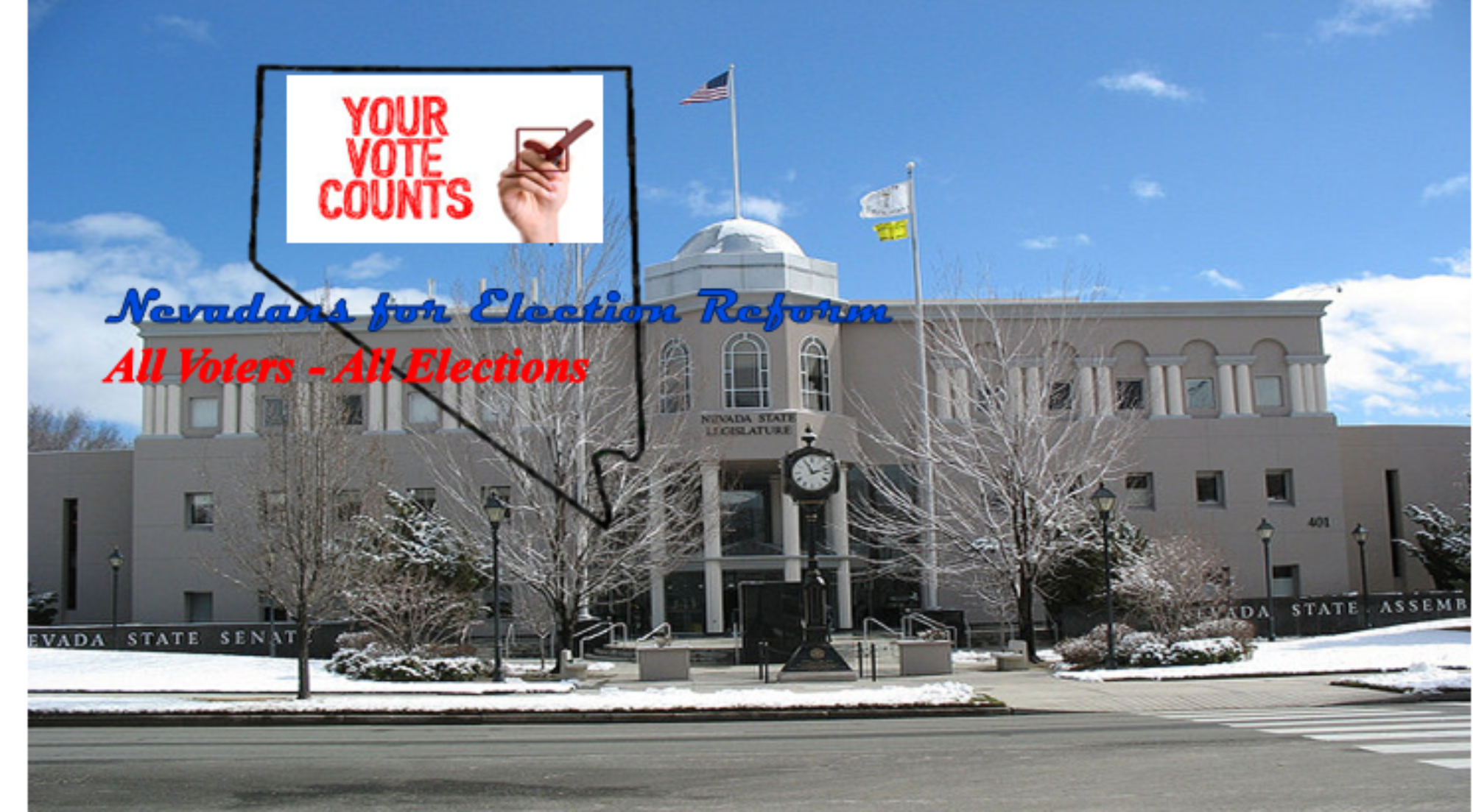By Doug Goodman, Founder & Executive Director, Nevadans for Election Reform
The candidates waged good campaigns. They appealed to the electorate and were victorious. But do they represent their constituencies? The answer to this question does not reflect on the candidates. It is a symptom of a process that prevents a majority from casting a vote for who represents them in state or local government; a clear example of voter suppression by statute. The answer is “no”.
Under current Nevada law, seven candidates won their seats outright in the primary election just held. In four of those races, the winner garnered less than six percent support from all voters in the district and less than 15 percent of their registered party voters. The other three races were only slightly higher. Approximately 55 percent of voters were prohibited from voting.
In the 2016 primary election, when the current law was first applied, there were 21 races that were won outright. In 13 of those races, 13 candidates received the support of less than 10 percent of the total district voters and less than 20 percent of their party. Since most of these races were Republican candidates in largely Republican districts on average just under 50 percent of voters could not cast ballots, however in one race it was 61 percent.
Another cause of these low numbers is that turnout for primary elections averages around 20 percent while general election turnout is between 65 and 85 percent dependent on whether it is a presidential election year. With fewer voters participating, mandating that a final decision is made as a result of the primary, flies in the face of representative democracy.
How could this happen and why did the legislature allow it to continue after voter suppression became clear?
Nevada has closed partisan primary elections. This mean that only members of the Democratic and Republican Party get to vote for partisan offices in their respective parties’ primary. Prior to 2016 this was not a problem because if only one party had candidates, no minor party or independent candidate filed for a particular office, all voters in the general election got to cast their vote for their preferred candidate from that party between the top two candidates from that party’s primary. The 2015 Nevada legislature changed the law so that if only one party has candidates for a particular office and no minor party or independent candidate has filed, the winner of the party’s primary goes to the general election unopposed. Voters from any other political party or voters registered as Non-Partisan have no choice, no voice in who their representative is. Currently this covers almost 30 percent of voters state-wide and close to 40 percent of voters between the ages of 18 to 34.
During the 2017 legislative session, a bill sponsored by a Republican and co-sponsored by three Democratic Assembly members, was filed to reverse this grievous mistake. The bill was voted out of committee on a vote of 9 -2 with two Democratic Assembly members voting “no”. The bill was then pulled from the floor by the Speaker and Assembly Majority Leader, both Democratic lawmakers, denying the full assembly the chance to vote on the bill. The bill died, leaving the voter suppression measure in place. Only two words describe this event, “voter suppression.”
There will most likely be another attempt to right this wrong during the 2019 state legislative session. However, it strongly appears the same leadership will be in control so the chances of passage or a repeat of 2017 are unknown.
There is another way, through the ballot box.
All voters must have a clear choice in all elections and must know their voice will be heard. Nevadans for Election Reform has taken aim at this goal by filing the Greater Choice – Greater Voice initiative with the secretary of state. Signatures are currently being collected to qualify for the 2020 ballot. If passed by the voters, the low turnout primary elections will no longer be held. Voters will go to the polls only in November and have a choice of all candidates. Additionally, voters will be able to cast a vote for their first, second, and third choice, similar to making the many choices we make every day. No more having to “settle” or be concerned about wasting your vote. Taxpayers will also save between $3 – 4 million; the state’s Legislative Counsel Bureau Financial Analysis Division just release the required analysis of the initiative and found if the proposed process had been in place for the 2016 election, taxpayers would have saved $6 million.
Voter suppression, denying voters the opportunity to cast a vote for their representatives must not be tolerated. Those responsible must be held accountable. If they refuse to fix it, the voters must act.
